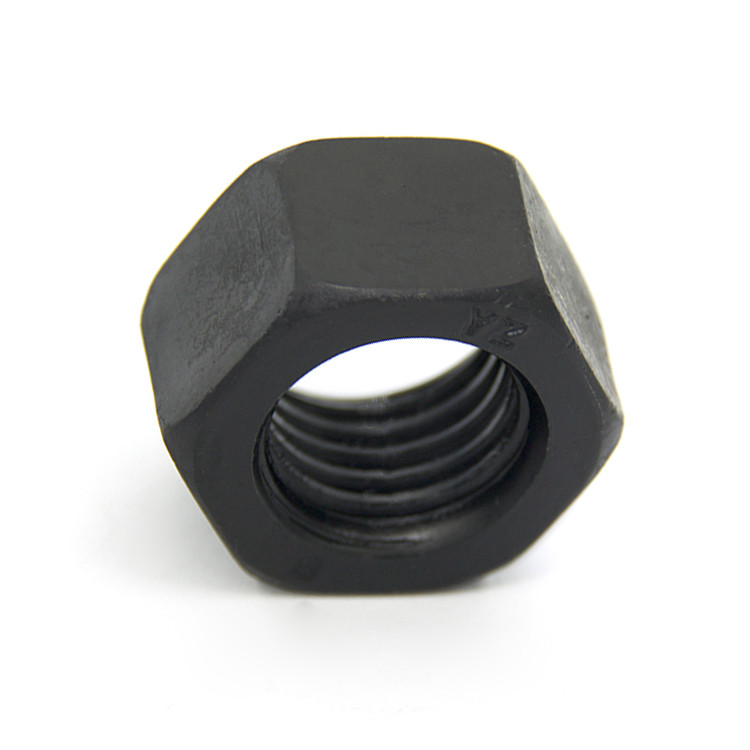Factories Specializing in the Production of Copper Bolts and Nuts for Various Applications
Jul . 28, 2024 14:06 Back to list
Factories Specializing in the Production of Copper Bolts and Nuts for Various Applications
The Copper Bolts and Nuts Industry An Overview
In modern manufacturing and construction, the significance of fasteners cannot be overstated. Among these, copper bolts and nuts have carved a niche for themselves due to their superior properties and wide-ranging applications. The specialized factories dedicated to producing these components showcase not only technological advancements but also the growth of a sector that meets the needs of numerous industries.
Copper, known for its excellent electrical and thermal conductivity, resistance to corrosion, and antimicrobial properties, is an ideal material for specific fasteners. Copper bolts and nuts are commonly used in electrical applications, plumbing systems, and various industrial settings where resistance to oxidation is crucial. The versatility of copper makes it a preferred choice over other metals in environments that demand durability and reliability.
The Copper Bolts and Nuts Industry An Overview
Once the materials are prepared, the manufacturing process typically involves several steps, including forging, machining, and surface treatment. Forging is commonly employed to shape the copper into desired forms, while machining ensures precision in dimensions. Following these processes, threaded features are added to the bolts and nuts, allowing them to function effectively. Finally, surface treatments such as plating or coating may be applied to improve corrosion resistance and enhance aesthetic appeal.
copper bolts and nuts factories

Quality control is a crucial aspect of copper fastener manufacturing. Established factories adhere to strict standards and regulations to ensure that their products meet industry requirements. This includes rigorous testing of mechanical properties, corrosion resistance, and dimensional accuracy. Certifications from recognized standards organizations can further establish a factory’s reputation in the market, making their products more desirable to consumers and businesses alike.
The demand for copper bolts and nuts is driven by a myriad of industries, including construction, automotive, aerospace, and electronics. In construction, for example, copper fasteners are preferred for roofing and plumbing due to their ability to withstand harsh outdoor conditions and resist rust. In the electronics sector, the conductivity of copper is paramount for ensuring efficient performance in various electrical components.
Moreover, the growing trend towards sustainable and eco-friendly materials has bolstered the appeal of copper. Unlike many other metals, copper is 100% recyclable without losing its properties. This aspect attracts environmentally conscious companies that prioritize sustainable practices, making copper products a favorable option in their supply chains.
In conclusion, the copper bolts and nuts manufacturing industry represents a critical segment of modern production and construction. With its numerous advantages, including durability, conductivity, and resistance to corrosion, copper fasteners are essential components across various applications. As technology advances and the demand for sustainable products increases, factories specializing in copper bolts and nuts are likely to continue evolving, embracing innovative practices and sustainable sourcing to meet the needs of an ever-changing market. The future of the copper fastener industry looks promising, with opportunities for growth and expansion in diverse sectors worldwide.
Latest news
-
High-Quality Panel Stud Bolt Reliable Panel Stud Bolt Factory & Suppliers
NewsJul.08,2025
-
High-Precision Fine Thread Locknuts Manufacturer & Supplier Custom Solutions
NewsJul.08,2025
-
PH Imperial Stud Bolt – High Strength Fasteners from Leading Supplier & Factory
NewsJul.07,2025
-
High-Quality Allen Wrench Bolts Leading Factory, Company & Suppliers
NewsJul.07,2025
-
Wholesale Ball Stud Bolt - High Quality Supplier & Factory Price Reliable Wholesale Ball Stud Bolt Company
NewsJul.06,2025
-
High-Strength Alloy Bolts Manufacturer & Supplier Quality Alloy Fasteners Factory
NewsJul.06,2025
